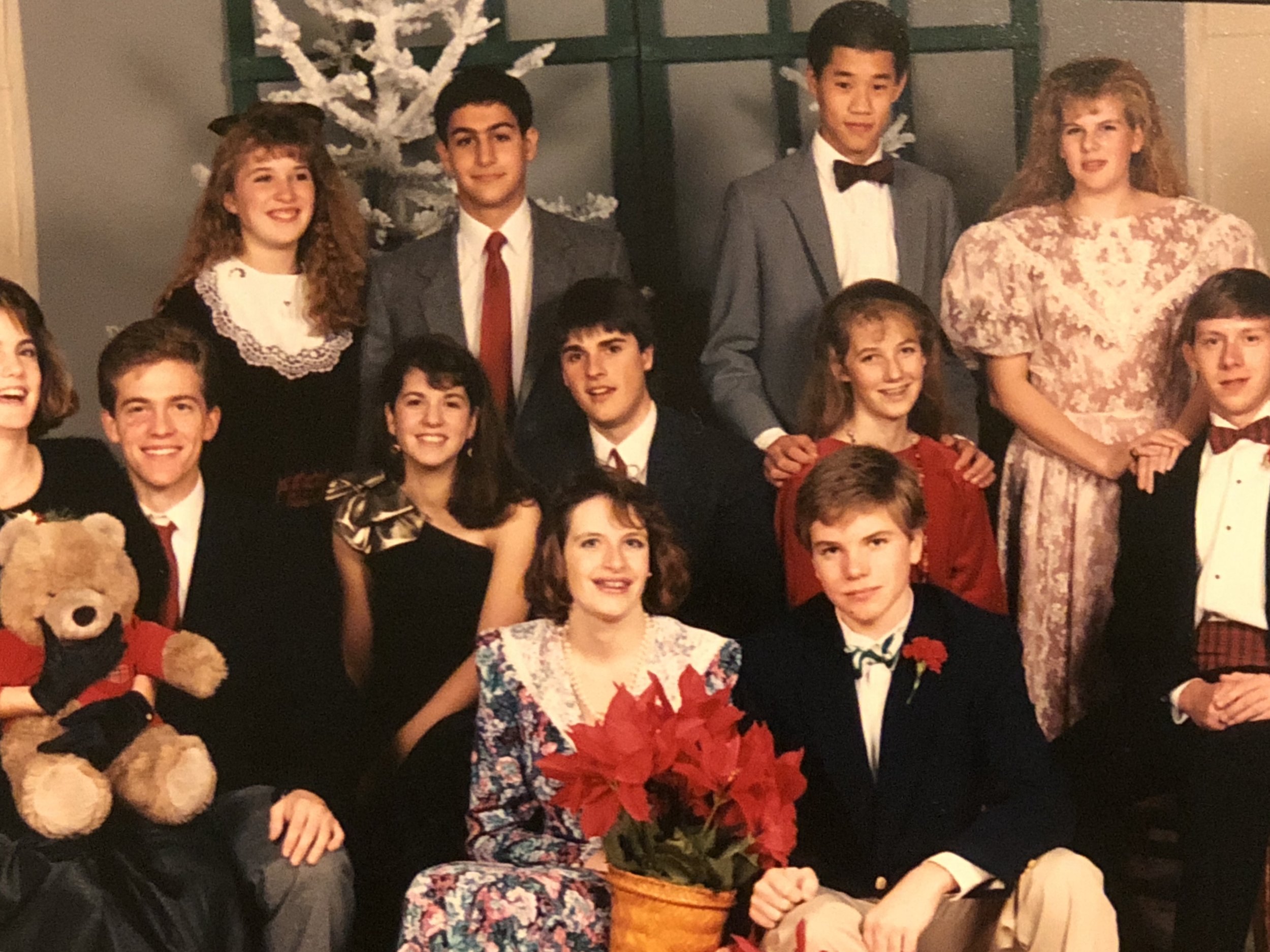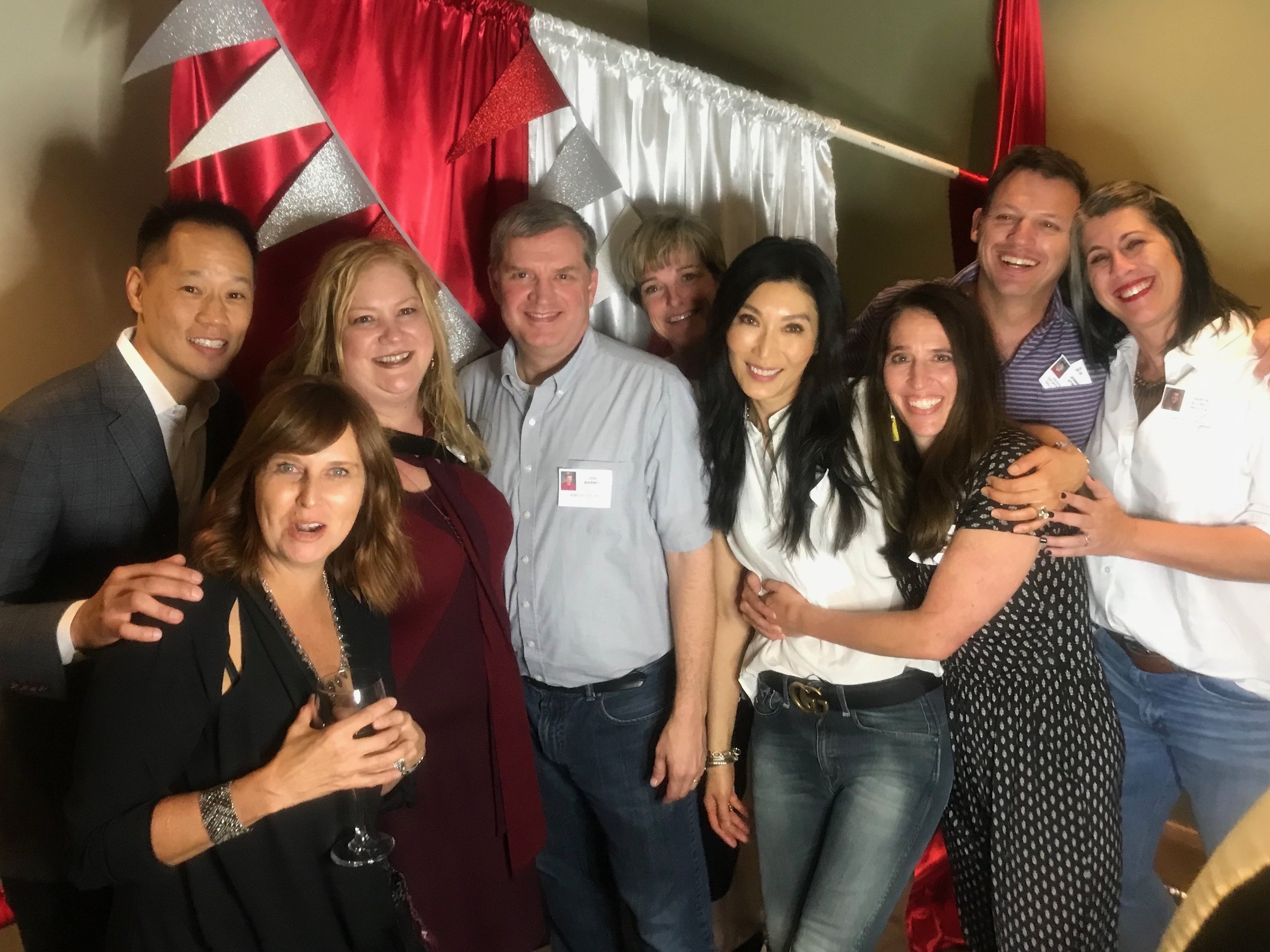Homecoming
View of Wasatch Mountains
Salt Lake City forms a valley contained on its east and southwest borders by the majestic Wasatch Mountains and on its northeast by the Great Salt Lake, a briny remnant of the Bonneville ocean which covered contemporary Utah, Idaho and Nevada 4,500 years ago. In the foundation story of the Mormon church, the bearded polygamist Brigham Young on July 24, 1847 peered down from 7,800 feet at the dry, cracked, mostly uninhabited, if you discounted the 20,000 predominantly Ute and Shoshone Native Americans he would directly or indirectly exterminate, Salt Lake Valley and said, “This is the place”. Young’s 16,000 followers having suffered a 1,375 mile westward journey, the murder of their church founder in Carthage, Illinois and religious persecution pretty much wherever they went were in no position to protest. Yet reality appeared before them. The Valley was not an obvious place to call home. It had been the passageway for many before who had intentionally chosen not to settle there. The Valley had a serious over-growth Creeping Jenny and Ragweed, which would have to be cleared. The large body of water that glistened and impressed from distance was too salty for irrigation or drink. Brigham Young himself carried title but was not a well-known entity. He was the designated church prophet, but his assumption of position due to his predecessors murder and his uniquely human form in light of impending hardship elicited collective doubt. As the caravan of Mormons descended down a seriously rocky path in what is now Millcreek Canyon, an omniscient narrative would have captured the panoply of expressions facing a group whose forthcoming days and years were uncertain. “Why here again?” “Faith. Faith.” “He is the prophet”. ”My feet are killing me.” “What the hell.”
I have not been back to Salt Lake for almost two years. Each visit presents a personal paradox. I was born and raised in Salt Lake City where my parents still reside, but was taught from an early age to leave, “How about Berkeley?” my dad used to say. “What’s that?” I’d say. I am a Taiwanese-American who has lived and traveled the world, so don’t think twice about coming home to a sea of white faces at Salt Lake’s International in name only airport. But as a child, I faced periodic discrimination, the feeling, which still repels and muddies. I recall my first experience with racism. It was the near end of the Vietnam war. I was a Kindergartener walking from school. A blue Land Rover filled with white teens screeched to a halt. I was called a gook, chink, and faggot, then pelted with water balloons, then told to go back home, where I was actually heading. My class worksheet on shapes with three golden stars fell onto the ground soggy and ripped. I did not pick it up. As the group drove away laughing, one of the girls chanted, “Chinese, Japanese, dirty knees, look at these,” then lifted her shirt revealing a startlingly flat chest.
Later as a teen not knowing Mandarin, ironically because my parents thought speaking it would make it harder for us children to fit in, when subject to social interactions that separated me, I had insufficient cultural support to mitigate the effects. When my friends and I watched movies, I too associated myself with the protagonists on the screen, particularly the one that gets the girl. Later at night, the door shut, I would practice kissing that girl against the bathroom mirror. My touch was soft. My fingertips resting gently at her waist, this being our first time, I did not use tongue. But when I opened my eyes, I saw a face that was not the blond-haired, blue-eyes boy that I practiced to be. I was sad and confused and to the extent one can be this on a fictitious date, heart-broken.
Typical East High School dance, 1986
During prom, my friends would speak with excitement about the (white) girls they wanted to ask out but leave me out of the conversation. Though I would respond by dating those same white women excessively and exclusively into my twenties, a preoccupation with race killed each relationship. If the woman didn’t like me, I thought, was it because of my looks or what was on the inside? If the woman actually liked me was it because she was able to see beyond race? How exactly did she do that and did I want her to do that? Being a minority in America in essence makes you twitchy. It’s hard to know what is what; what is on you versus someone else; what is internal and what is external. When I learned to speak Mandarin, in contrast, entire worlds opened up to me. For the first time I felt what it is like to possess power related solely to the luck of being born into a group. I too could be the majority. I too could be a desirable figure. I too could act politically in company yet out of the mainstream. Speaking Mandarin even exposed me to other Asian Americans, who didn’t speak Mandarin, but who understood the fine line of wanting to be different and not different at the same time and being able to walk it. The point was it was our choice. I can say this realization of self in the context of language, culture and community has been my life’s most profound privilege and pleasure. One morning you wake up and 1.5 billion people suddenly and naturally have your back. No group of white kids dare pelt you in this construct. In contrast, as a non-Mandarin speaking Taiwanese-American growing up in Utah during the 70’s and 80’s, I was like a frog living with chickens, which is made fun of for understandable chicken deficits. Worse, not only couldn’t I jump or swim, there weren’t other frogs. What then was my recourse? The same fate as the chickens I dare say: The butcher.
* * *
This three and a half day trip to Salt Lake is organized around adult agenda items: My Dad wants me to move items from the garage to the store room. I am accompanying my mom for eye surgery. It is my 30-year high school reunion.
I stopped asking my Dad years ago the logic of moving items that no two people on earth want from one side of the house to the other. My Dad is eighty and a frugal man, who still reminds me of the time I threw away twenty dollars when I was seven years old along with a prodigious number of gum wrappers crumpled in the same pocket. This combination of age and compulsive memory gave my father extreme advantages in as a scientist but leaves him hard of learning in many social settings. Policemen who stop my father for driving 30 mph in a 25 mph zone beware. At least know your standard deviations.
One set of backbreaking items to be translocated consists of multiple lasers. My Dad was a physical chemist for forty years. I believe he subconsciously believes that these large steel cased objects contain brain remnants because he cannot fathom parting with cutting edge (in 1990) laboratory equipment without compensation. While my dad and I scrape these items with red veined facies and bulging eyes to their new destinations, my Dad somehow utters the single word, “Ebay.” Then there is the ski equipment that we children wore when we were in elementary school, 1/3 unpaired, half home to black widow spiders, “Don’t get bitten! We still have more to move!!” My personal favorite items juxtaposing mortality with futility are stacks of Newsweek and Journal of Physical Chemistry magazines which one would have you believe may become collectors items. It’s his house. Lift with your legs. Fu*k. God grant me the serenity to accept the things I cannot change… Random words and phrases flit through my head simultaneously zapping and bestowing strength.
Mom, (Drew), and Dad









